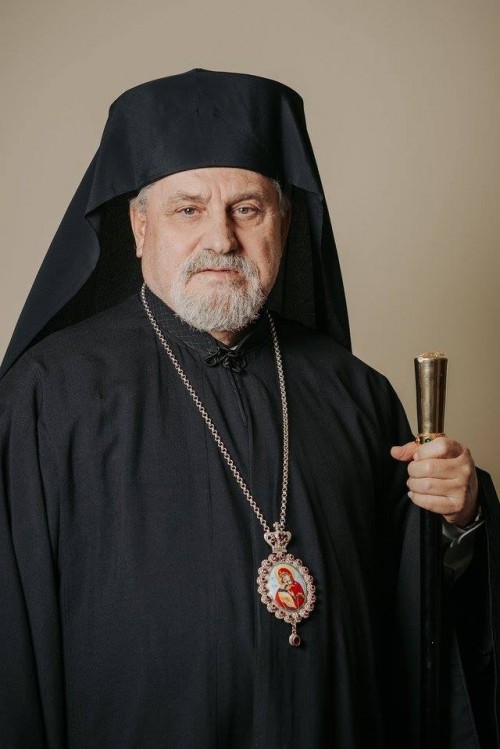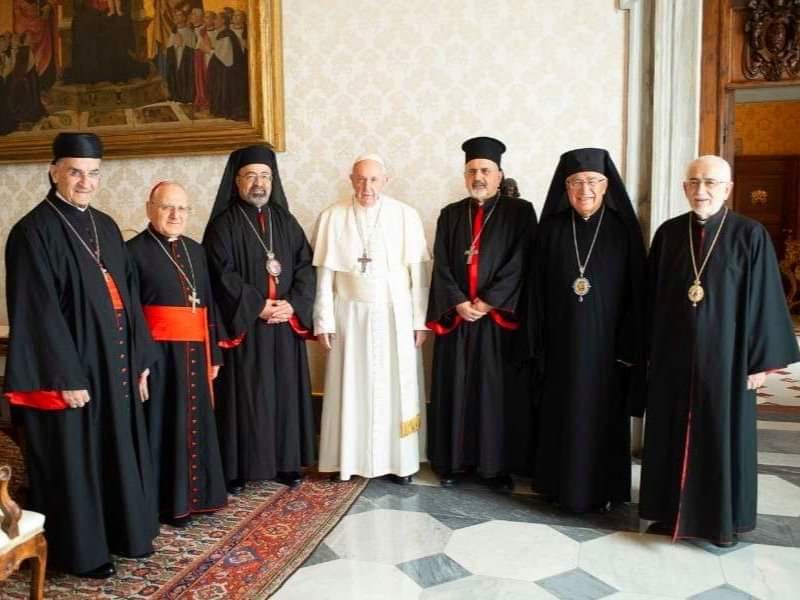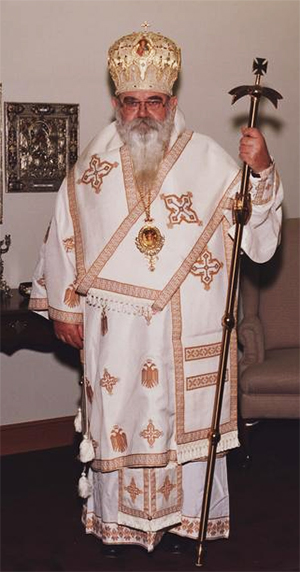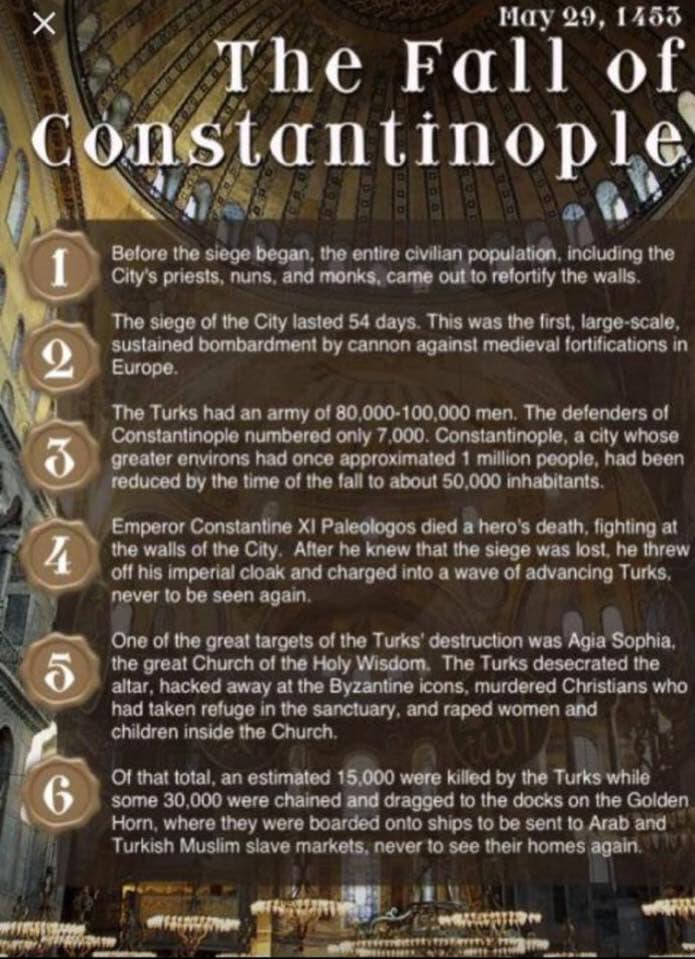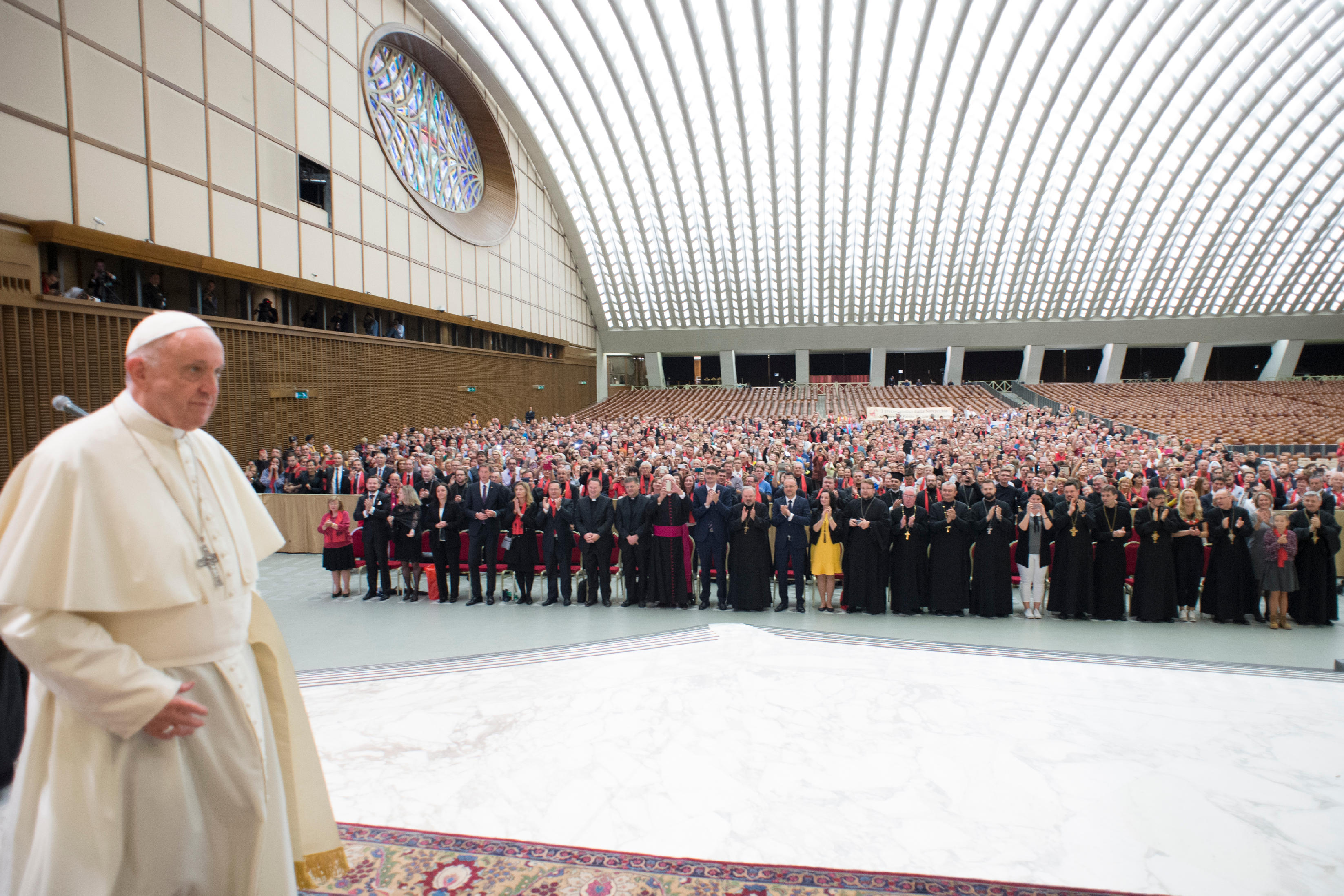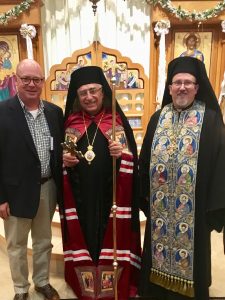Given that we are at the beginning of Holy Week –a week that has changed all of human history– and that we are dealing with the drama of the Coronavirus, we need a word of hope at this time of challenge. It’s important to attend to the words of a cloistered nun because she is at the heart of humanity and the heart of the Church.
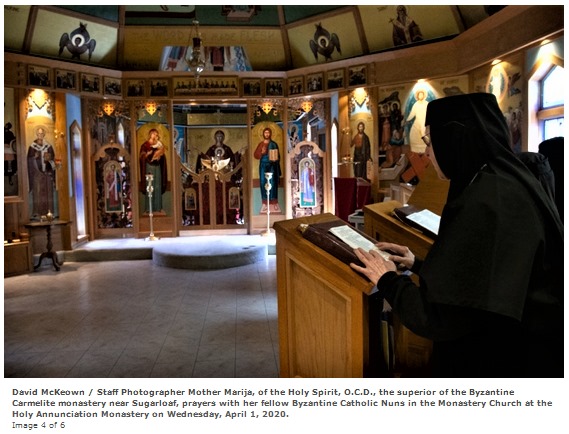 All this in mind, John E. Usalis wrote a piece for today for The Republican Herald, “Fearing isolation? Byzantine nun offers advice from life in cloister” with David McKeown as photographer. They did a good job bringing to life some good ideas from Mother Marija, the Mother Superior of a monastery unknown to many in the USA. The Holy Annunciation Monastery (Sugarloaf, PA) is rather unique place as the nuns adhere to the Byzantine Liturgy, theology and spiritual disciplines and they belonged until recently to the Washington Province of Carmelites. Now they are in process of moving to a monastic way of life that is closer to the Eastern ethos (dependent on the bishop) while following the Rule of St. Benedict, and other historic monastic rules.) So, the article is a bit confused as to the exact details of the life. The nuns are working on a clear line of communication.
All this in mind, John E. Usalis wrote a piece for today for The Republican Herald, “Fearing isolation? Byzantine nun offers advice from life in cloister” with David McKeown as photographer. They did a good job bringing to life some good ideas from Mother Marija, the Mother Superior of a monastery unknown to many in the USA. The Holy Annunciation Monastery (Sugarloaf, PA) is rather unique place as the nuns adhere to the Byzantine Liturgy, theology and spiritual disciplines and they belonged until recently to the Washington Province of Carmelites. Now they are in process of moving to a monastic way of life that is closer to the Eastern ethos (dependent on the bishop) while following the Rule of St. Benedict, and other historic monastic rules.) So, the article is a bit confused as to the exact details of the life. The nuns are working on a clear line of communication.
Self-distancing and isolation in these trying times of the coronavirus is a difficult adjustment for many.
For an order of religious women in Luzerne County, however, it is their lifestyle.
Holy Annunciation Monastery near Sugarloaf is home to the Byzantine Discalced Carmelites, a religious order that follows the Monastic Rule of St. Benedict. The monastery is part of the Ruthenian Byzantine Eparchy of Passaic, New Jersey.
The 12 nuns in the monastery live a cloistered life, which means they are strictly separated from the affairs of the outside world. Once they profess their solemn vows, they live apart from society, free of distractions and immersed in a life of prayer “for the good of the world,” according to “A Nun’s Life” website.
 Ninety- year- old Mother Marija of the Holy Spirit, one of the three founding nuns when the monastery was inaugurated on Feb. 23, 1977, is the monastery’s superior. Father Walter J. Ciszek, S. J., whose cause for canonization in the Catholic Church is being investigated, played an important part in the monastery’s founding.
Ninety- year- old Mother Marija of the Holy Spirit, one of the three founding nuns when the monastery was inaugurated on Feb. 23, 1977, is the monastery’s superior. Father Walter J. Ciszek, S. J., whose cause for canonization in the Catholic Church is being investigated, played an important part in the monastery’s founding.
Mother Marija has been a Carmelite nun for 74 years, the first 30 years in the Roman Catholic rite. “Patience obtains everything,” she said. “There’s not much difference here.”
‘It’s about growth’
Entering the order currently allows for a much slower adaptation of oneself in living a cloistered life.
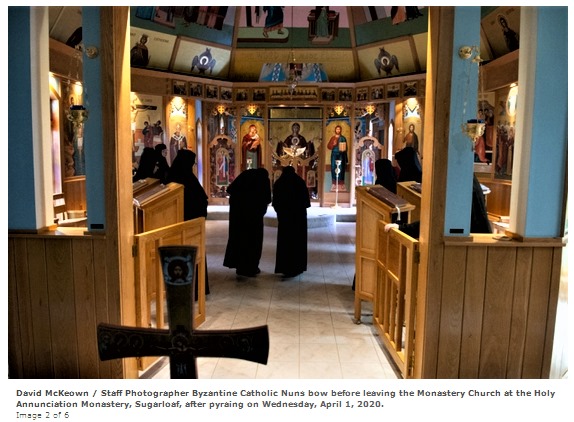 “It was very, very strict; very rigid. For 20 years I never saw the front door,” Mother Marija said. “What I did in six months postulancy, now we take two years observership and two years postulancy. So now instead of six months, it’s four years. That is so the person can grow. In my day, you were processed. Now, it’s about growth.”
“It was very, very strict; very rigid. For 20 years I never saw the front door,” Mother Marija said. “What I did in six months postulancy, now we take two years observership and two years postulancy. So now instead of six months, it’s four years. That is so the person can grow. In my day, you were processed. Now, it’s about growth.”
She said adapting to a more closed- in condition can depend on each person’s personality.
“Some people are predisposed to a certain amount of solitude, who are the introverts,” she said. “There are also the extroverts. They’re great neighbors, but not always such great people in the house. Their neighbors enjoy them more than their family members do.”
She said it’s important for those entering the cloister to see “where our gifts are,” and find balance.
“You identify how God made you. That’s a big thing,” she said.
“I tell the sisters that when you get to heaven, you’re all a bunch of cakes, but are you an angel cake, a chocolate cake, a pound cake? God will put into your life what is needed in your recipe.
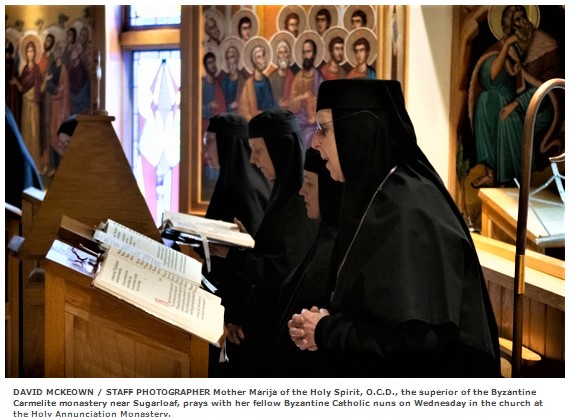 “I don’t think enough of us — and it took me a long time — realize that before we were made, God knew exactly what he wanted of us,” she added.
“I don’t think enough of us — and it took me a long time — realize that before we were made, God knew exactly what he wanted of us,” she added.
Hope, love, truth
Mother Marija offered tips for living a self- distancing life through its religious aspects.
“The first thing is, you have to have hope. We all have to know where we’re going. You always have a destination. If you’re making something, you need to have an idea of what’s next,” she said. “You just don’t leave aimlessly.”
The second thing is to believe one is loved.
“That has to be an experience that is already there. We should be so kind to other people. Mother Teresa wanted for everyone to feel before they died in the Hindu culture of untouchables that that person was loved. That gives you value. You have to have love and faith and prayer working interchangeably.”
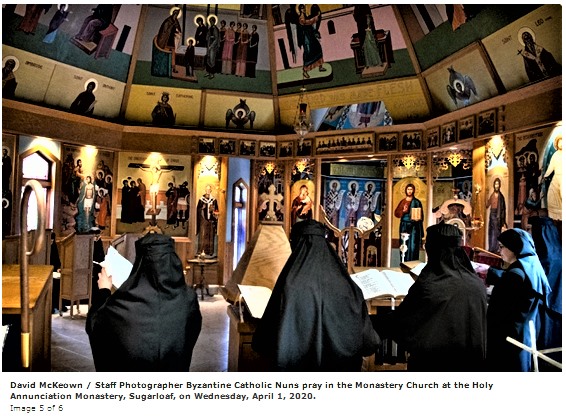 Looking for the truth in a situation is also necessary.
Looking for the truth in a situation is also necessary.
“That means that we’re not too sure of ourselves,” she said. “There needs to be an area of self- doubt, a trust in someone else’s opinion and the readiness to communicate.”
Thinking of others beyond oneself is also an important condition.
“When you’re young, up until 21, you think of the success of yourself. You have to develop your own potential,” she said. “But from 30 on, make a success of someone else.
Holy Annunciation Monastery
403 West County Road
Sugarloaf, PA 18249
570-788-1205







